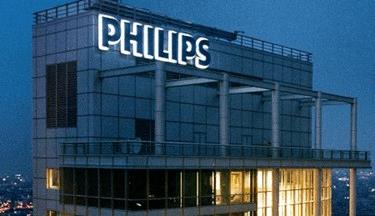Philips CEO: Full Focus Now On Health Technology
By Jof Enriquez,
Follow me on Twitter @jofenriq

Following the successful listing of its lighting business on the Euronext Amsterdam Stock Exchange in May, Royal Philips can now focus squarely on its HealthTech business, according to its chief executive.
For the second straight quarter, Philips' HealthTech portfolio grew 5 percent to drive overall sales to EUR 5.9 billion, the company reported. Broken down by segment, Personal Health expanded 9 percent, while the Connected Care and Health Informatics businesses grew 6 percent. Equipment order intake slid 1 percent, but is expected to rebound in the second half of the year.
After separating the lighting business, Philips still retains a majority 70 percent stake, but plans to fully sell down over the next several years.
"We can now fully focus on capturing the exciting opportunities in the health technology space, allowing Philips Lighting to do the same in the growing market for energy-efficient lighting," Philips CEO François A. van Houten told analysts during a conference call.
"Our transformation program Accelerate! continues to drive top line growth and deliver savings that, on an annualized basis, more than compensate for inflation, price erosion and our ongoing investments in quality and new business areas like health informatics, wearable patient monitoring solutions, Population Health Management and digital pathology that all offer great long-term growth and margin potential," said van Houten, according to Seeking Alpha.
He told analysts that Philips is making "sizable investments" in its HealthSuite digital platform, and in medical wearable sensors, as the company plans to offer more patient monitoring solutions covering the full health continuum. Philips also continued to beef up its HealthTech portfolio in the second quarter through strategic partnerships in health IT.
In May, it announced an eight-year, $36 million deal to provide patient monitoring services for Medical University of South Carolina Health (MUSC Health). In June, it bought Path XL, a digital imaging analysis (DIA) and software firm, and inked an agreement with VisioPharm to combine their breast cancer panel algorithms with Philips' IntelliSite digital pathology solution. In the same month, Philips also introduced its cloud-based Patient Adherence Management Service (PAMS) for sleep and respiratory therapy. The successful launch of PAMS helped grow the Personal Health business by 9 percent in the second quarter.
Last week, Philips acquired Wellcentive, a US-based provider of population health management software solutions, to add to its enterprise telehealth, home monitoring, personal emergency response systems (PERS) and personal health services.
Volcano, a catheter-based imaging company acquisition last year, has integrated well with Philips and posted double-digit growth in the second quarter, according to van Houten. That helped Philips' Image Guided Therapy business achieve double-digit growth for the period.
"Cross-selling into each other's customer base is generating extra growth," van Houten said in an interview with Reuters. Philips is open to further focused acquisitions, he told the news outlet, with systems for processing patient data and diagnostics of particular interest.
Philips is reportedly willing to spend billions on both large and smaller deals to scale up its HealthTech unit.
"We will consider disciplined but more active approach to M&A," van Houten told analysts during the conference call. "We will have our eyes and ears wide open about our selective possibilities, but I would not jump to the conclusion that we are now on a spending spree."
